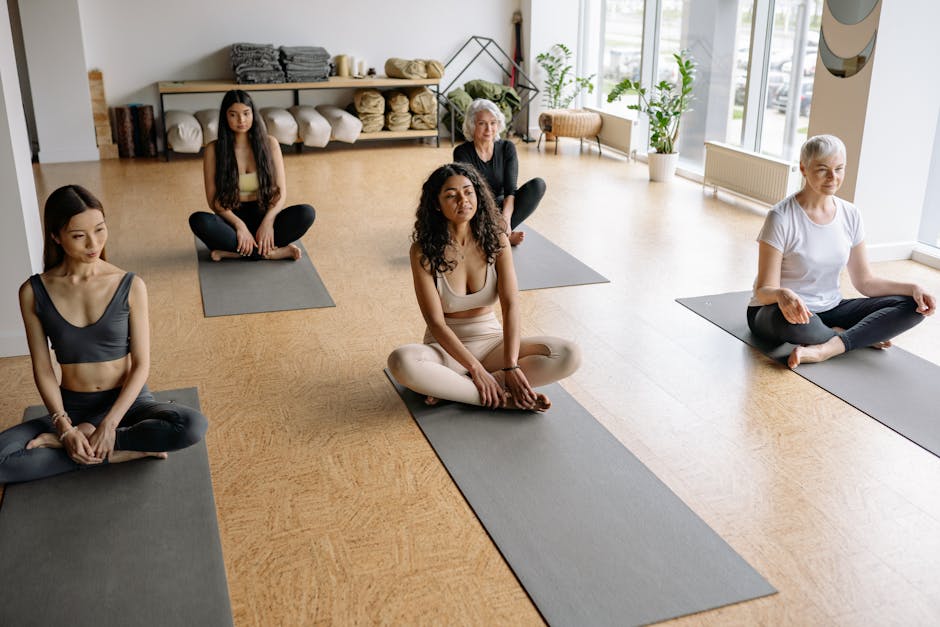Unlocking the Power of Self-Care: A Comprehensive Guide
Self-care is a term that has gained significant popularity in recent years, but what does it truly mean to practice self-care effectively? In a world that values productivity and efficiency, taking time for oneself can often be overlooked or even deemed as selfish. However, self-care is essential for maintaining overall well-being and mental health. In this comprehensive guide, we will delve into the various aspects of self-care, exploring different strategies and techniques to help you prioritize your own needs and nurture your mind, body, and spirit.
The Importance of Self-Care

Self-care is not just about indulging in occasional pampering sessions or treating yourself to a spa day. It encompasses a much broader spectrum of activities and practices that are essential for maintaining balance and inner peace. At its core, self-care is about recognizing your own needs and taking proactive steps to meet them. It is a form of self-love and self-respect that allows you to show up as your best self in all areas of your life.
Physical Self-Care

Physical self-care is one of the fundamental pillars of overall well-being. It involves taking care of your body through healthy lifestyle choices, regular exercise, proper nutrition, and adequate rest. Engaging in physical activities that you enjoy, such as yoga, running, or dancing, can not only help you stay fit but also improve your mood and reduce stress levels. Eating a balanced diet rich in nutrients and staying hydrated are also crucial components of physical self-care.
Emotional Self-Care

Emotional self-care focuses on nurturing your emotional well-being and developing healthy coping mechanisms for managing stress, anxiety, and other challenging emotions. This can include practicing mindfulness, journaling, seeking therapy or counseling, and setting healthy boundaries in relationships. It’s important to acknowledge and process your feelings rather than suppressing them, as this can lead to emotional distress and burnout.
Mental Self-Care

Mental self-care involves taking care of your cognitive well-being and mental health. This can include engaging in activities that stimulate your mind, such as reading, learning a new skill, or solving puzzles. Setting realistic goals, practicing time management, and maintaining a healthy work-life balance are also important aspects of mental self-care. It’s essential to prioritize rest and relaxation to prevent mental exhaustion and improve cognitive function.
Social Self-Care
Social self-care focuses on nurturing your relationships with others and building a strong support system. Spending time with loved ones, connecting with friends, and participating in community activities can provide a sense of belonging and fulfillment. It’s important to surround yourself with positive and supportive people who uplift and encourage you. Setting healthy boundaries in relationships and prioritizing quality time with loved ones are key aspects of social self-care.
Spiritual Self-Care
Spiritual self-care involves connecting with your inner self and exploring your beliefs, values, and purpose in life. This can include practicing meditation, spending time in nature, attending religious or spiritual gatherings, or engaging in creative pursuits that nourish your soul. Taking time for introspection and self-reflection can help you cultivate a sense of inner peace and harmony. Developing a spiritual practice that resonates with you can provide a source of strength and guidance in challenging times.
Self-Care Tips for Busy Individuals
For many people, the idea of practicing self-care can seem overwhelming, especially when juggling multiple responsibilities and commitments. However, integrating self-care into your daily routine doesn’t have to be complicated or time-consuming. Here are some simple yet effective self-care tips for busy individuals:
- Start your day with a few minutes of mindfulness or meditation to set a positive tone for the day.
- Take short breaks throughout the day to stretch, breathe deeply, or go for a quick walk to refresh your mind and body.
- Create a relaxing bedtime routine to unwind and prepare for a restful night’s sleep.
- Practice gratitude by keeping a daily journal of things you are thankful for.
- Schedule regular self-care activities, such as a weekly workout session, a monthly massage, or a daily self-care ritual.
Expert Opinions
According to renowned psychologist Dr. Angela Duckworth, “Self-care is not selfish; it’s essential for maintaining overall well-being and resilience. By prioritizing your own needs and nurturing your mind, body, and spirit, you can show up as your best self in all areas of your life.” Dr. Duckworth emphasizes the importance of self-care practices in promoting mental health and emotional well-being.
Common Misconceptions
One common misconception about self-care is that it is a luxury reserved for those who have ample time and resources. In reality, self-care is accessible to everyone and can be incorporated into daily routines in simple and practical ways. It doesn’t have to involve elaborate spa treatments or expensive indulgences; even small acts of self-kindness and self-compassion can have a profound impact on your overall well-being.
Conclusion
To wrap things up, practicing self-care effectively is essential for maintaining balance and well-being in all aspects of your life. By prioritizing your own needs and nurturing your mind, body, and spirit, you can cultivate a sense of inner peace and resilience that will empower you to face life’s challenges with grace and confidence. Remember, self-care is not selfish; it’s a necessary investment in your overall health and happiness. So take the time to care for yourself, embrace self-love, and make self-care a priority in your daily life.




